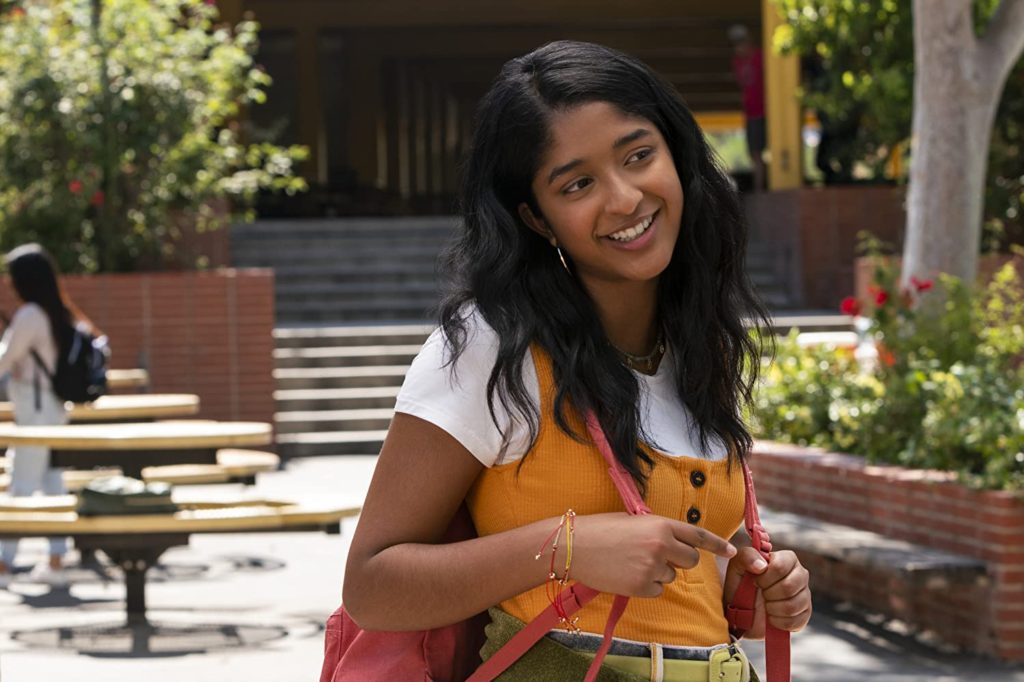Thank goodness for TV this year. With social distancing, lockdowns, and quarantines, it has been the most reliable source of entertainment during the pandemic. Thankfully, 2020 was an especially good year for television by and about women.
Well-established genre tropes were upended in true crime docuseries “I’ll Be Gone in the Dark,” fantasy/sci-fi epic “Lovecraft Country,” and anti-rom-com “Feel Good.” The work and personal passions of women were celebrated in “P-Valley” and “The Queen’s Gambit,” while “The Baby-Sitters Club” received an inclusive, feminist, extremely warm-hearted update. Projects such as “I May Destroy You,” “A Teacher,” and NXIVM docuseries “The Vow” and “Seduced” further delved into issues related to power, consent, and sexual assault. And today’s political battles took on new resonance with “Mrs. America,” a miniseries about women on both sides of the ERA fight.
In short, there was a ton of amazing women-driven and -made TV this year — too much to whittle down into one best-of list. And yet, somehow, we did just that. Here are Women and Hollywood’s favorite new television projects of 2020.
“I May Destroy You” – Created by Michaela Coel; Directed by Michaela Coel and Sam Miller
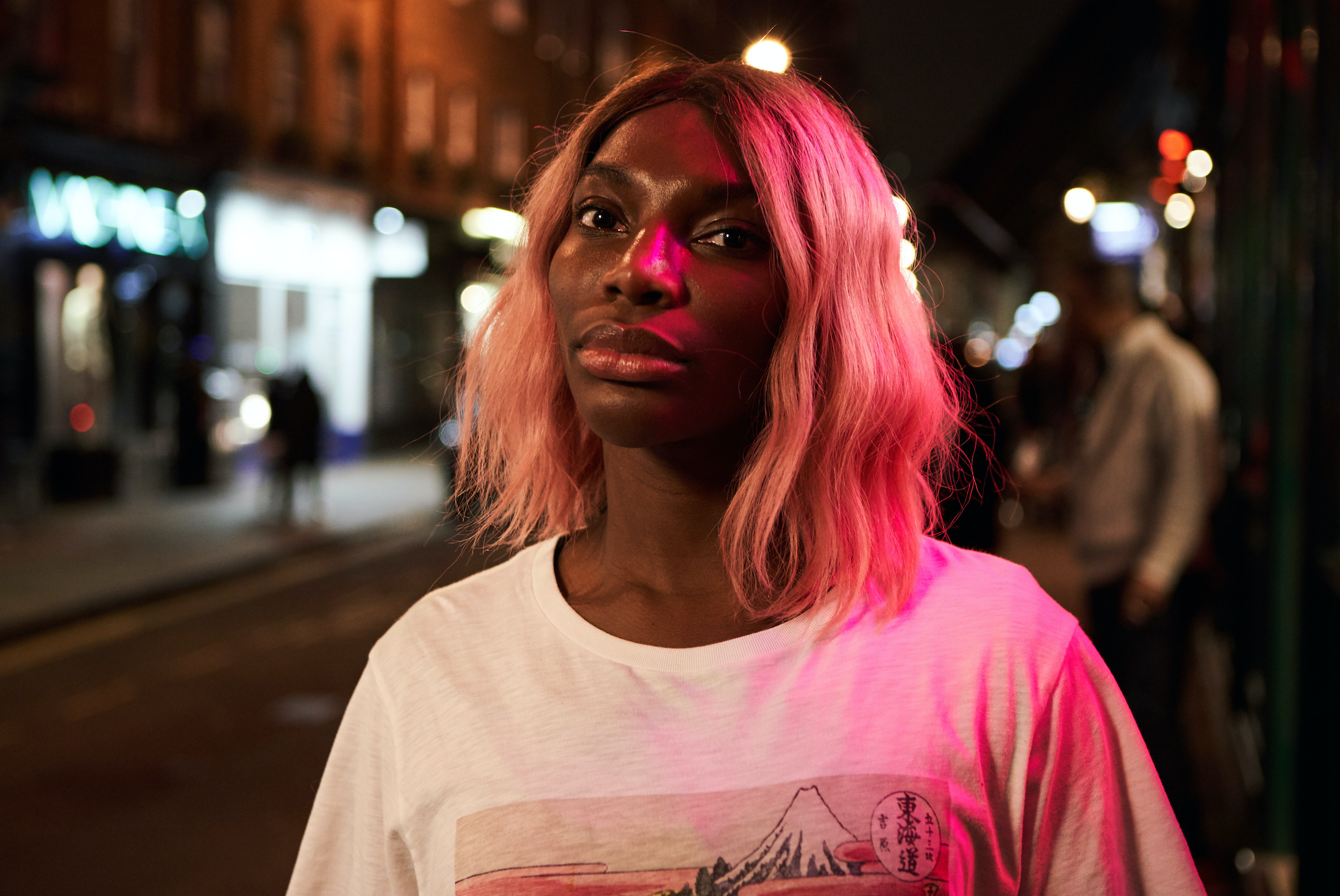
“I May Destroy You”: HBO
After the rise of #MeToo and the revelations of just how common and insidious sexual violence is, I never expected to like a show that delved into the so-called gray areas. The circumstances where the stakes and rules aren’t clear, or the situations that start out fine but end up somewhere dangerous. (In my defense, “Gray areas” are so often used as get-of-jail-free cards or weak justifications.) I was wrong. Michaela Coel’s semi-autobiographical “I May Destroy You” is interested in all the questions and complexities related to sexual assault and consent — whether or not there are answers, whether or not there are precedents — and it’s fucking amazing.
The story begins with rising author Arabella (Coel) going out while on deadline. Next thing she knows, she’s sitting in her publisher’s office with a cut on her forehead and gaps in her memory. Eventually she realizes the flashes that keep going through her mind — of a man violently thrusting in a bathroom stall — are memories of an assault. Arabella’s drink was spiked and she was raped.
While Arabella’s assault and the resulting trauma make up most of “I May Destroy You’s” 12 episodes, the series also explores various other permutations of dating, sex, race, gender, consent, coercion, and rape. Arabella’s friend Kwame (Paapa Essiedu) has a consensual hookup that ends in a transgression that may not technically be illegal, for instance. In one of the show’s best episodes, a flashback reveals a white classmate of Arabella knowingly falsely accused a Black boy of rape. He’s exonerated thanks to the pictures he took while having consensual sex with the girl, pictures taken without her knowledge or permission. If guilt and innocence exist on opposite ends of a spectrum, the series suggests, the majority of us fall somewhere in between. (Rachel Montpelier)
“I May Destroy You” is available on HBO and HBO Max.
“The Queen’s Gambit”
Anya Taylor-Joy plays a brilliant chess prodigy besieged by addiction in “The Queen’s Gambit,” Netflix’s bingeworthy adaptation of the 1983 novel of the same name. Set in the late 1950s, the miniseries follows Beth (Taylor-Joy), a professional chess player, from her childhood in an orphanage to her headline-making runs at international tournaments.
After being given daily tranquilizers along with all of the other kids at the orphanage, Beth becomes reliant on them. Using her drug-addled imagination, she nurtures her newfound love of chess by projecting a chessboard onto her ceiling every night before bed to practice moves.
Drugs and chess become inextricably linked for Beth, leading to substance abuse problems throughout her life. Within the confines of a chess board, she can make sense of the world. It’s the only space she can control, and the only space she feels safe in. But she’s convinced that she needs to be under the influence to be granted access to that world.
“The Queen’s Gambit” is an addiction story, but it’s also a coming-of-age story, an exploration of genius and its toll, and a portrait of a woman working her way up in a male-dominated profession. (Laura Berger)
“The Queen’s Gambit” is available on Netflix.
“Unorthodox” (Miniseries) – Created by Anna Winger and Alexa Karolinski; Directed by Maria Schrader
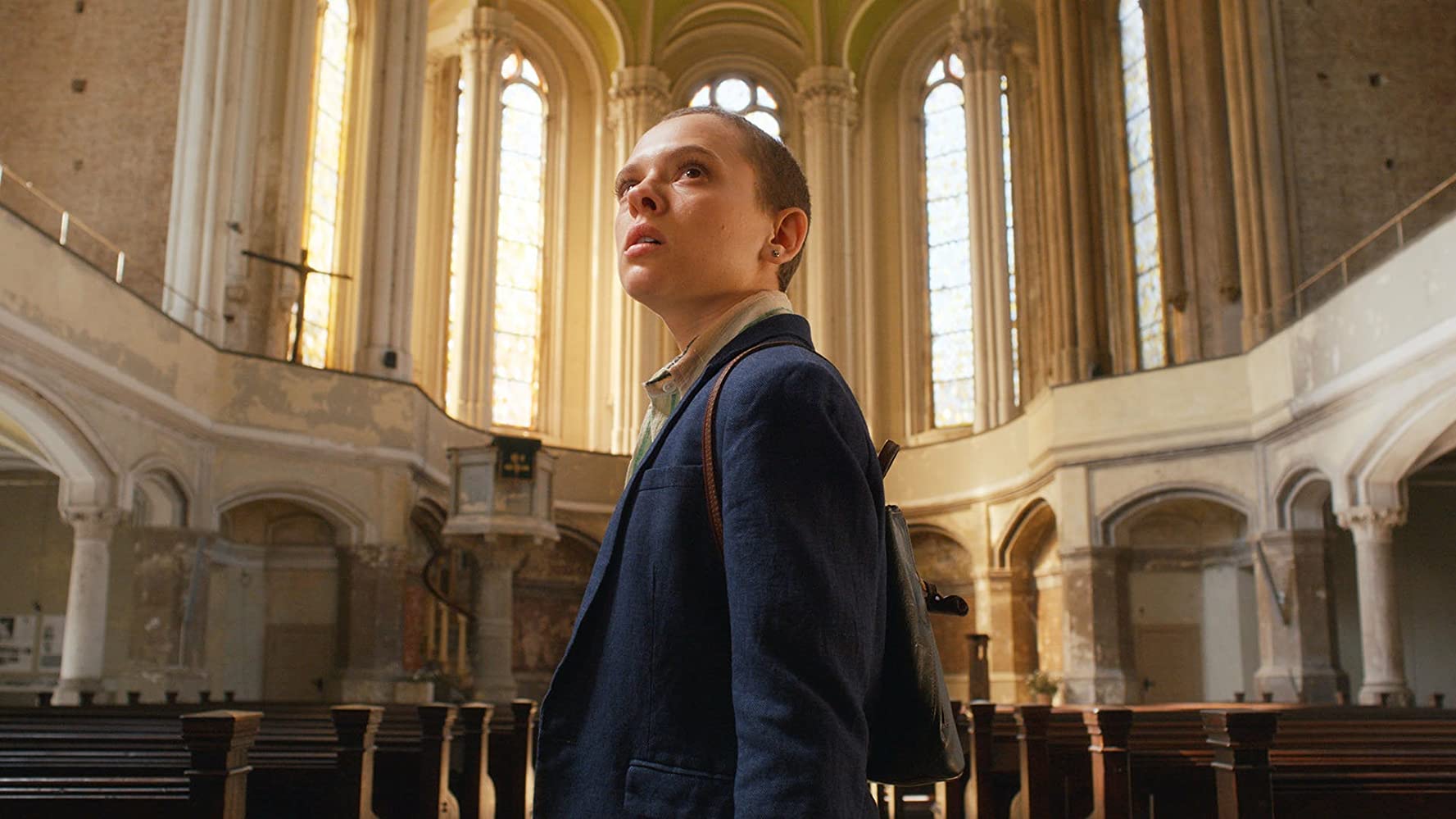
“Unorthodox”
Netflix’s “Unorthodox” explores a vast array of subjects in its four episodes: faith, culture, family, marriage, sex. But more than anything else, the miniseries is the story of a young woman focusing on herself and her own desires for the first time in her life.
Based on Deborah Feldman’s bestselling memoir, “Unorthodox” sees 19-year-old Esty (Shira Hass) fleeing her Hasidic Jewish community and arranged marriage, and traveling to Berlin on her own. The reasons for her abrupt departure are slowly parsed out over the course of the miniseries via flashbacks. We see Esty adhering to the strict rules of her ultra orthodox faith, while also dreaming of more. Once she’s married to kind man-child Yanky (Amit Rahav), the only value she has in her world is her ability to bear children.
At a certain point, Esty realizes “God expect[s] too much” of her, and makes her way to Berlin. For the moment, she’s free — free from the gossip of her friends and family, from the rules and practices of orthodox religion, and from the idea that women are only useful as wives and mothers. Things are pretty good, but Esty hasn’t fully escaped her community. She may have decided to break with Hasidic Judaism, but her family feels well within their rights to bring her back — by force if necessary.
“Unorthodox” — which landed eight Emmy nods and a win for director Maria Schrader — is as much a deconstruction of orthodox religion’s intersection with gender as it is a bildungsroman. The more Esty questions Hasidic Judaism, the more she trusts in herself. Giving up the ultra orthodox lifestyle doesn’t mean giving up her spirituality — instead, it allows her to gain autonomy. (RM)
“Unorthodox” is available on Netflix.
“Betty” – Created and Directed by Crystal Moselle
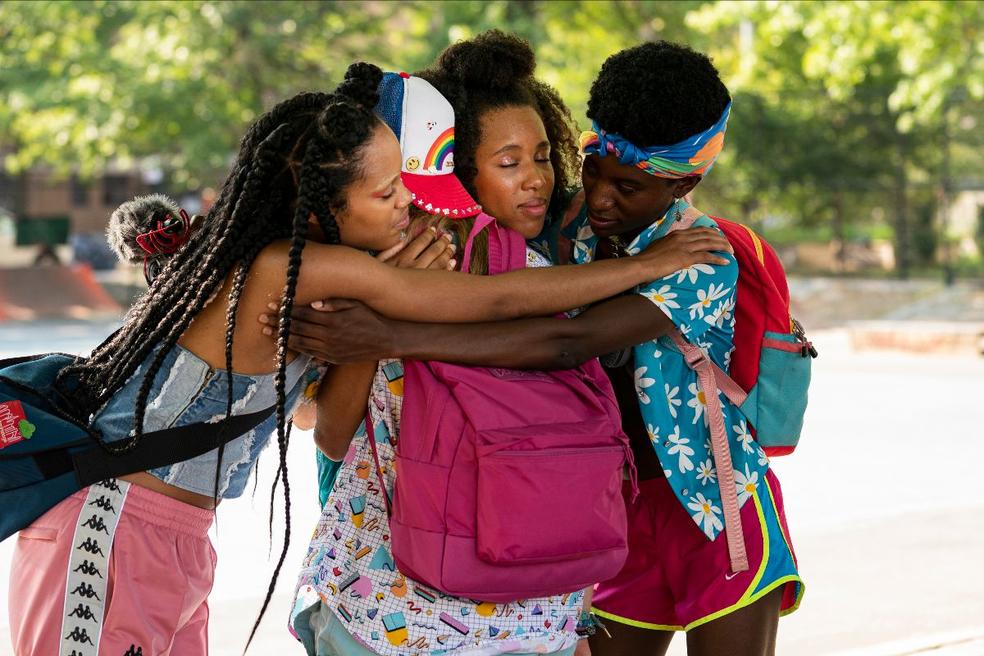
“Betty”
Impossibly cool while remaining relatable, the young women at the center of “Betty” are amazing skateboaders and seem like they’d make equally amazing company. An adaptation of Crystal Moselle’s 2018 pic “Skate Kitchen,” HBO’s comedy series tells the story of an all-female group of skaters in New York City determined to get respect in a scene dominated by dudes.
Refreshingly, the skating crew actually reflects New York, a racially and culturally diverse city that often skews heavily white in TV and film. The skaters come from different backgrounds and classes and have different sexual orientations, but they’re united by their love of the sport. Some are loud and confrontational. Others are meek and evade drama at all costs. Some are quick to call out the patriarchy. Others are more concerned with fitting in with the boys. The crew is far from monolithic — and tensions often arise due to their differing perspectives on everything from race to #MeToo. But what stands out about “Betty” is just how liberating it feels to watch these ladies own the streets on their boards.
“Betty” is available on HBO and HBO Max.
“Feel Good” – Created by Mae Martin and Joe Hampson; Directed by Ally Pankiw
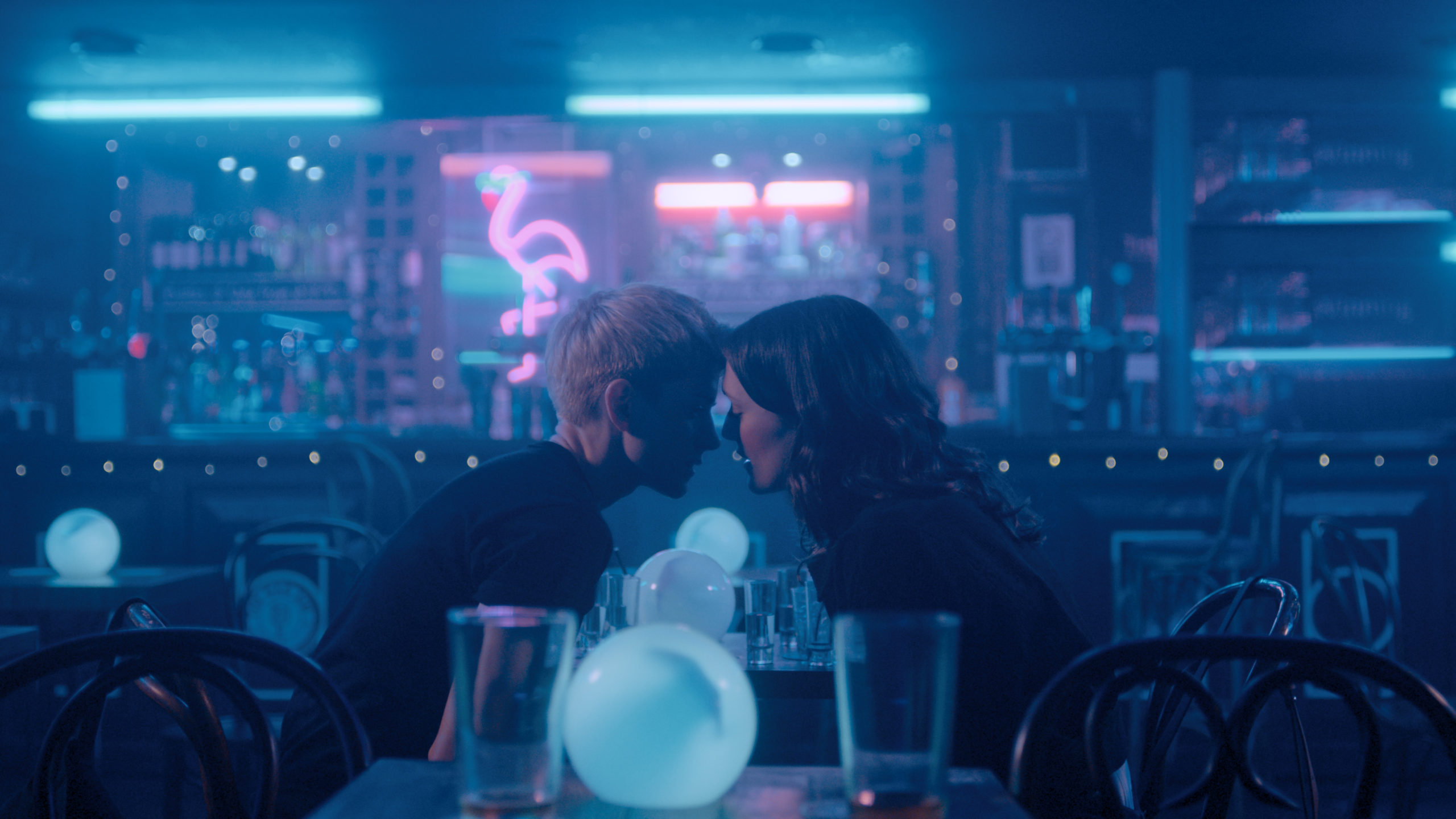
“Feel Good”: Netflix
You know what rom-coms rarely acknowledge? That relationships usually feature one partner being more in love, being more invested, having more power, than the other. It’s a bummer, but the truth is that relationships have inequities. “Feel Good” embraces that truth and runs with it.
In the comedy series’ opening scenes, Mae (Mae Martin) enters into a swoony, whirlwind romance with George (Charlotte Ritchie), who had previously never even kissed a girl. The rest of the first season delves into the push-and-pull of Mae and George’s relationship. Mae has had same-sex relationships before, so she has the upper hand in regards to experience. But due to her struggles with substance abuse — which in her sobriety has morphed into love addiction — Mae is on less stable ground than George. And, in a dick move reminiscent of “Happiest Season,” George treats Mae like shit when they’re around George’s friends and family, because she hasn’t come out yet. And then there’s the saddest power imbalance of all: Mae may be a little bit more in love with George than George is with her.
“Feel Good” doesn’t offer any easy answers to the above issues — probably because there aren’t any. Love and devotion aren’t always distributed equally, and factors such as family, insecurity, fear, and addiction sometimes throw a wrench into everything. That can be a hard thing to swallow, but to quote another one of my favorite non-rom-coms, at least it’s fucking real. I can’t tell you how much I appreciate “Feel Good” for owning that. I’m confident it will continue to do so in Season 2. (RM)
“Feel Good” is available on Netflix.
“Never Have I Ever” – Created by Mindy Kaling and Lang Fisher
Funny, heartfelt, and savvy, “Never Have I Ever” is a perfectly timed breath of fresh air in these weird, stressful times. Created by Mindy Kaling and Lang Fisher and based on the former’s own childhood in suburban Massachusetts, the Netflix comedy tells the story of Devi Vishwakumar (newcomer Maitreyi Ramakrishnan), a first-generation Indian-American teenager living in Sherman Oaks, California. The series kicks off with Devi praying before a Hindu shrine, begging the gods for less armpit hair and a boyfriend who is a “stone-cold hottie.”
Now entering her sophomore year, the overachiever is fully aware that she and her BFFs, theater nerd (Ramona Young) and robotics enthusiast (Lee Rodriguez), aren’t cool, and she’s determined to “re-brand.” Desperate to “pop [her] cherry,” Devi devises a plan to change her peers’ perception of her, a journey that often leads her to neglect her long-term besties.
While “Never Have I Ever” shows an affection for other teen series — it directly engages with “Riverdale,” for example — the series centers its story on a character whose race, culture, and religion would usually relegate them to the sidelines of this genre, if they are portrayed at all. Universally relatable yet refreshingly different, “Never Have I Ever” is so charming it left most of us wishing that a second season was already available to binge. (LB)
“Never Have I Ever” is available on Netflix.
“The Vow” (Docuseries) – Directed by Jehane Noujaim and Karim Amer & “Seduced: Inside the NXIVM Cult” (Docuseries) – Created by Cecilia Peck and Inbal B. Lessner; Directed by Cecilia Peck
For anyone interested in the stranger-than-fiction, yet timelessly misogynist, tale of Keith Raniere and NXIVM, “The Vow” and “Seduced: Inside the NXIVM Cult” offer different details, accounts, and outlooks of the toxic Albany-based organization. NXIVM is best known for its so-called “sex cult” subset DOS, in which women were branded, starved, and sexually assaulted.
From “Great Hack” directing team Jehane Noujaim and Karim Amer, “The Vow” is a wider overview of Raniere, NXIVM and its corporate-esque seminars, and follows several subjects, including survivors/whistleblowers Sarah Edmondson, Bonnie Piesse, and Mark Vicente. In contrast, “Seduced,” created by “Brave Miss World” filmmakers Cecilia Peck and Inbal B. Lessner, takes a more granular, focused approach, predominantly following DOS survivor India Oxenberg.
“Seduced” is more blatant about the inherent misogyny of DOS and Raniere’s philosophy, and provides more information about the psychology of cults — how members are broken down so that they are completely reliant on the organization and totally disconnected from their own instincts. Meanwhile, “The Vow” looks at the good and the (very) bad, taking pains to explain why so many people were drawn to NXIVM — and remained blind to its misdeeds for so long.
There has been a lot of debate about which NXIVM docuseries is better, but it may make more sense to think of them as complementary, two parts of a larger whole. With all the information about Raniere, his crimes, and his enablers out there, these two shows serve as both a primer on NXIVM and a sobering coda, reminding the fascinated viewers just how destructive the cult was and is. (RM)
“The Vow” is available on HBO and HBO Max. “Seduced” is available on Starz.
“Normal People” (Miniseries) – Directed Hettie Macdonald and Lenny Abrahamson; Written by Sally Rooney, Alice Birch, and Mark O’Rowe
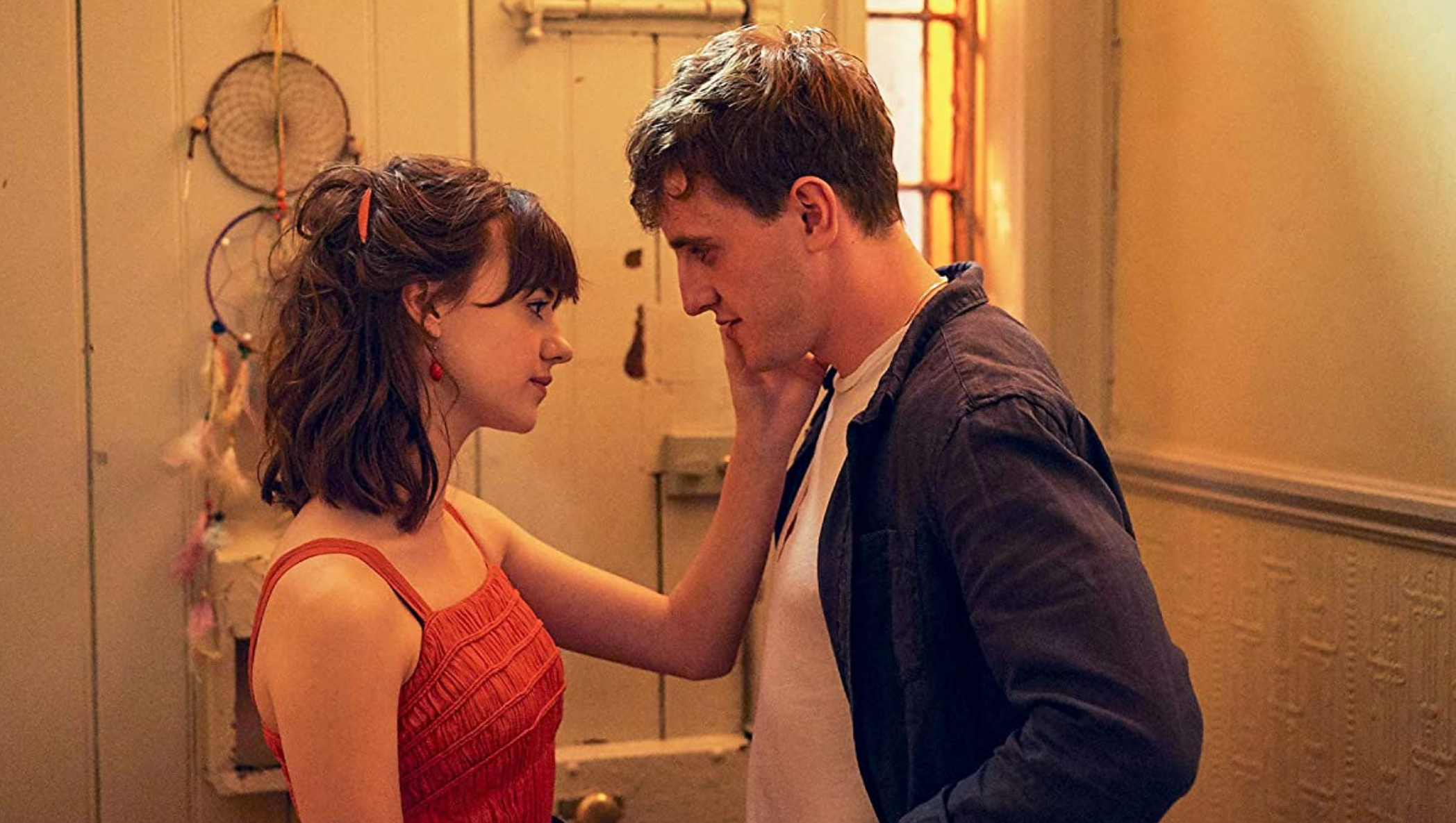
“Normal People”
An adaptation of Sally Rooney’s best-selling novel, “Normal People” tells the story of an on again/off-again couple in Ireland who keep finding their way back to one another. At times breathtakingly intimate, the Hulu romance has plenty more going for it than the undeniable chemistry of its leads, Daisy Edgar-Jones and Paul Mescal. Their love story is compelling, but all the more so because the show, like the book before it, engages with class, privilege, trauma, and other forces shaping the protagonists and their evolving relationship.
The love story certainly doesn’t have the most romantic of beginnings. After Marianne confesses to having feelings for Connell in high school, he agrees to hook up with her — so long as she’s willing to keep the details of their arrangement private. That way, he explains, things won’t get weird at school, where Marianne is a social pariah and he runs with the popular kids. Connell is ashamed of having anything to do with a girl his friends consider unfuckable, and simultaneously ashamed of being someone who cares so deeply about what other people think, especially since he’s genuinely falling for Marianne.
“Normal People” follows Marianne and Connell after high school and through college, charting how they shape one another’s worlds and decide what they want out of life. The fate of their relationship is ultimately left ambiguous, but there’s nothing ambiguous about the impact that their bittersweet romance had on the young couple and millions of tear-stained viewers.
“Normal People” is available on Hulu.
“A Teacher” – Created by Hannah Fidell
Based on her 2013 film of the same name, Hannah Fidell’s show adds another layer to the multi-faceted conversations surrounding consent and power. Claire Wilson (Kate Mara) is in a rut and wants to feel excited about her life again. Eric Walker (Nick Robinson) is her charming, younger-than-he-seems AP English student. She offers to tutor him for the SATs and their mutual attraction soon progresses into a full-blown affair.
Except “affair” isn’t the right word; Claire and Eric do not enter into this thing on equal footing. Claire may tell herself that she and Eric are just naturally drawn to each other, but that’s not the full story. From meeting him outside of school for his tutoring sessions, to taking him on an unofficial tour of his dream college, to asking her cop brother to let him off the hook after a party gets broken up, Claire is grooming Eric for a sexual relationship. And she succeeds.
Crucially, much of “A Teacher” is depicted from Eric’s perspective, and the series encapsulates the build-up and aftermath of Claire and Eric’s relationship. We witness the lines that are crossed, the decisions that are made, and the fallout that ensues. The show never shies away from the double standard that we as a culture perpetuate about predatory encounters between teachers and students. If a female high school student sleeps with her teacher, she’s a victim; if a male student sleeps with his teacher, he’s a “god,” to quote one of Eric’s friends. Not only is that untrue, it makes a horrible situation even worse for male victims.
At the beginning, Eric would describe his relationship with Claire as consensual. But as he grows up, he gains new insight. His “hot teacher” assaulted him. “A Teacher’s” honesty about this makes it another essential piece in the #MeToo era of storytelling. (RM)
New episodes of “A Teacher” premiere Tuesdays on Hulu.
“Lovecraft Country” – Developed by Misha Green
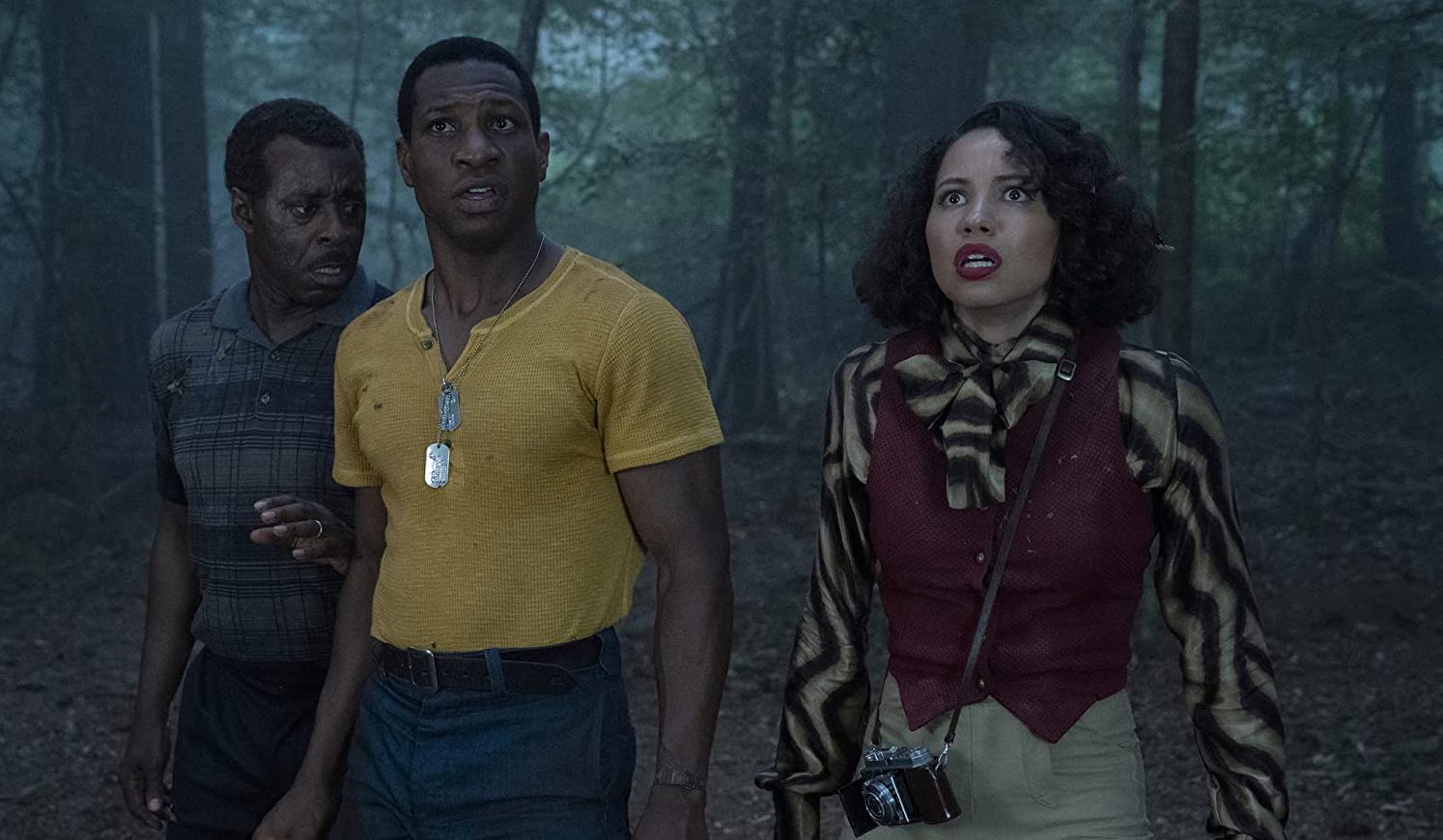
“Lovecraft Country”
The supernatural, like everything else, informs and is influenced by systemic racism in “Lovecraft Country.” Misha Green’s HBO series, developed from Matt Ruff’s novel of the same name, dissects the legacy of racial bigotry in science fiction and horror — ahem, H.P. Lovecraft — and American history. It both reckons with and reclaims genre tropes, problematic and otherwise, from a Black perspective.
Set in the 1950s, “Lovecraft Country” sees Atticus “Tic” Freeman (Jonathan Majors) returning home to Chicago when his father (Michael Kenneth Williams) goes missing. Along with his Uncle George (Courtney B. Vance), the writer and publisher of a Green Book-esque travel guide for the Black community, and childhood friend Letitia “Leti” Lewis (Jurnee Smollett), Tic takes a cross-country trip through Jim Crow America to find his dad.
In each episode, “Lovecraft Country” tackles a distinct genre staple or set-up: a road trip that goes awry, a haunted mansion, a potion for body-swapping. We’ve heard these stories ad nauseam, but the series’ centering of Black characters and experiences makes them feel urgent, and vital. Being stranded is scary. Being a Black person stranded with racist police officers in the ’50s is a nightmare — one that too many people have had to face.
Witnessing Tic, Leti, and their friends fight social and paranormal evils is extremely cathartic, right now especially. As 2020 America contends with its own monsters — the mishandling of the pandemic, Stop the Steal idiocy, race relations that continue to be, put mildly, fraught — “Lovecraft Country” is well worth revisiting. It’s a hell of a terrifying, galvanizing, infuriating, inspiring watch. (RM)
“Lovecraft Country” is available on HBO and HBO Max.
